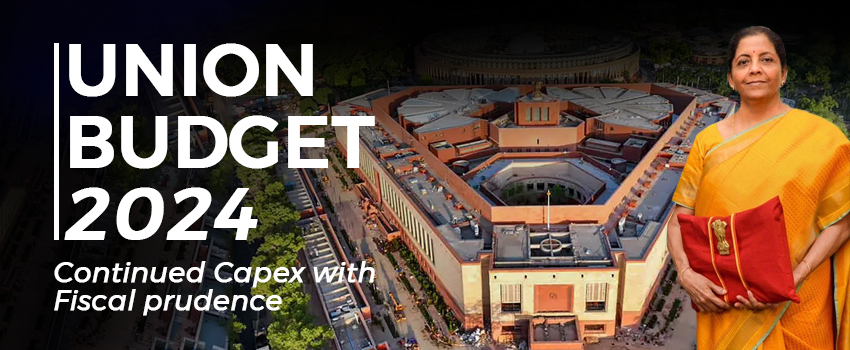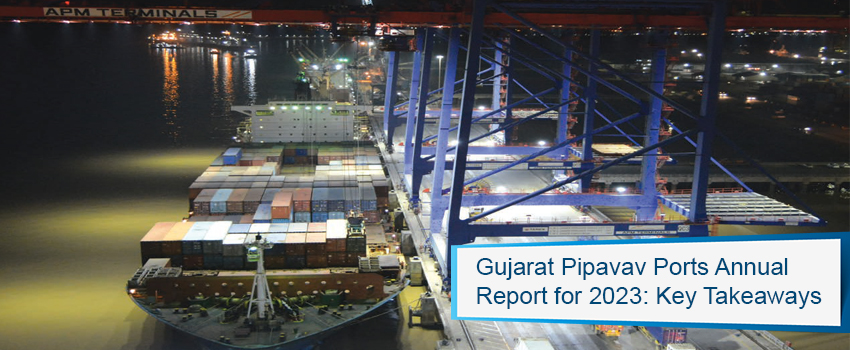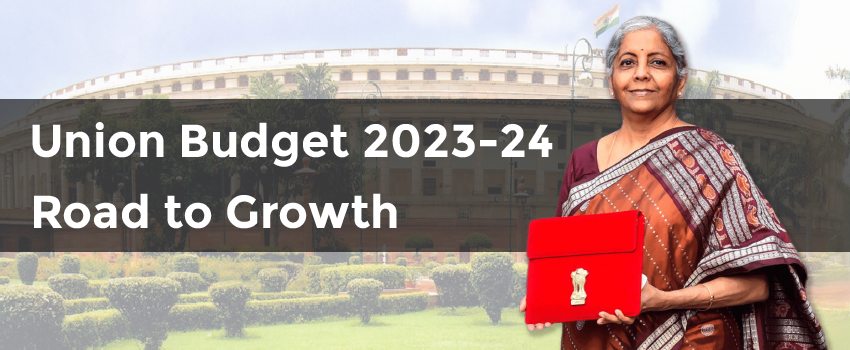Today the most talked about topic is ‘2014 General Election’. If one were to switch on any news channel today, we can be certain of one thing, there are showing either Election debates or what was said by any of the political personality in the course of the day against other political party. In short, there is saturated coverage on election and politics. However one thing that is not covered by the most of the commentators is how the outcome of this election is likely to impact the mood of the nation.
In the first of these series, we would try and fill up this gap at least as far as the economy and stock markets go. This week, we are starting by asking ourselves “What if a Centre-Right-BJP led coalition was to win this general election?”
Before we start contemplating the possible effect of BJP forming a government at the centre after 2014 General Election, let’s recap in short the current state of the economy.
Over the last 10 years, India has flirted with Centre-Left economic policies with large scale enactment of Entitlement programs and other welfare economic policies on one hand, and creeping privatization of PSU companies through sale of equity in open market on the other hand. There has been a clear departure from previous experiments of investment promotion and job creation to sale of government holdings to private companies. As a result, we have moved from low fiscal deficit level of 2.54% achieved in 2007-08 to a high 4.1% (after adding off balance sheet items and items for which money has not be disbursed by Government, the actual fiscal deficit would be much higher. Also note that FRBM Act mandates a fiscal deficit target of 3% to ensure sustainable growth parameters).
The high fiscal deficit of 4.1%, high and sticky Consumer Price Inflation of 8%+ for over the last 5 years, now has greatly impacted the structure of the Indian economy. On one side, we are seeing increasing wage pressure and low consumption rates set in, and on the other hand, job creation has been the slowest over last 15 years led by low investment rate, slowdown in service sector growth and manufacturing sector growth. To put this simply, there is more gloom in the economic environment than bloom to speak about.
What we think of general election…
People have lots of expectations with the upcoming election and upcoming government; we believe that we could see a more decisive mandate. Our expectations is based on both on recent polls that predict a decisive mandate in favour of a centre right political formation and our observation that with the exception of recent Delhi election, a political party that has presented a strong development agenda has generally won the state elections. It is therefore not surprising to see that the three most dominant concerns of Indian electorate today are: Inflation, Employment and Development. While caste equations still matters, they are becoming weak or are atleast weak this time around (Even in the most caste sensitive constituency, caste is a necessary condition to get respectable number of votes but development mantra is what takes you towards the finishing line). After 10 years of centre left political experience, at the centre, there is a good likelihood of a decisive verdict in the coming general election in favour of centre right reformist government.
Recent opinion poll suggests that the single largest party of centre right collation can easily have representation in parliament of close to 200-220 seats on its own. Do not be surprise to see a policy reset at the centre. From focus towards inclusive growth and entitlement based polices focus is likely to shift towards market based economic policies, high investment led bias and skills development to meet the aspiration of masses.
Outlook for Indian Economy and Stock Markets if BJP led coalition wins a decisive mandate to form Government
Based on the policies that have been discussed by think tanks and economist (like Jagdish Bhagwati- Arvind Panagariya) known to be close to the BJP led NDA, & based on the policy experiments done by their Prime Ministerial candidate in his own state, we have attempted to figure out few sectors that are likely to be big beneficiary of the new policy thrust of the government.
Infrastructure: As of 2009-10, Gujarat’s total road length stood at about 77265KM and state highway of 19761KM. According to the statistics, Gujarat state road has expanded significantly in last 10 year as compared to growth witnessed in first 50-60 years. A December 2010 World Bank report “Institutional Development and Good Governance in the Highway Sector – Learning from Gujarat” says
“The current plan road network size of 74,111km is among the highest in terms of network density per sq. km. in India’s states and is among the best managed networks among all the Indian states. The annual road sector allocation has grown from USD 30 million in 1995-1996 to an impressive USD 610 million in 2010-11, currently the second largest among all the Indian states”
We believe that Infrastructure esp. Roads would continue to be thrust areas of the new government going in to future. A major requirement for it would be streamlining land acquisition, NHAI tendering process, development of a national fund to finance road development.
Power: One of the major achievements of the Gujarat government has been on the power front with many out of the box solutions like separate transmission line for farms leading to substantial improvement in Power scenario of Gujarat. As of June 2013, 100% of Gujarat’s villages have electricity connection for 24hr power through the Jyotirgram Yojana. During this period Gujarat moved from a power deficit state to a power surplus state. It is likely that BJP would try and make this as one of its major poll promises to electorate. Based on recent news reports, it likely that BJP would focus on a vision of achieving 24*7 electricity supply not only to urban areas but also in rural areas by 2020. This, we believe would be key policies of BJP government given the fact that Power deficit is becoming a major constraint towards ensuring a sustainable growth in future.
PSU: During the last NDA government at centre, we saw major disinvestment of PSU companies. Modi government in Gujarat pursued a different track of decentralised administration of Gujarat PSU with more autonomy to take operational decisions with government looking at only big picture investment decisions. We believe a similar experiment would be hallmark of the NDA government towards PSU. Decentralisation would be seen in PSU manufacturing units and banks wherein they can enjoy more autonomy in their operational decision, with Maharatnas even having some level investment autonomy. Loss making PSU could have an opportunity to restructure themselves and become efficient or seek a strategic investment (similar to like HZL, BALCO).
PSU OMC like IOCL, HPCL, BPCL could also see much more benign policy environment that would at one level see continuity towards monthly price increases to decrease under recoveries and hence OMC losses and subsidy pressure on government. We also think that Global Crude prices are likely to be much closer to USD 80 per barrel allowing over next 5 years as USA becomes one of the major energy exporters from been an energy importer. This will make energy deregulation much more politically acceptable to the political parties in coalition this would be beneficial to OMCs.
We also think that there is a realization among the top economic leaders in BJP that high political interference and crony capitalism has been responsible for high build up in stress in Bank assets. PSU Banks would be forced to be more efficient in their use of capital by seeking a mix of government support and raising of capital from the open market. As one of the BJP leaders Piyush Goyal said:
“There are enough and more avenues available to raise capital through dispersed ownership of banks’ equity capital. It is not as if we are handing over the banks to some industrialists and there should be any objection. The shareholding is being dispersed to small retail shareholders and millions of Indians are becoming partners in the progress of that bank.”
Strong Liability franchises like SBI, PNB and BoB could go for raising money from open market, some of the smaller banks with weak balance sheets would be merged with larger stronger PSU Banks while some of the smaller banks with regional presence with relatively strong balance sheet and capital adequacy ratio can expect budgetary support.
It is important to note that RBI is also looking for means & ways for developing a much more fool proof method of NPA recognition, restructuring of stressed assets in genuine cases and legal action to recover bank assets from wilful defaulters. The 2008 financial crisis and global experience of bad assets in banking sector and its impact on the overall economy has ensured that this would be the priority of any Central Banker. The recent case of United Bank of India will only hasten the process at regulatory level. RBI under Raghuram Rajan, wants to go one step ahead as he has repeatedly stressed development of early warning mechanisms for NPA so that Banks and RBI can take proactive steps to contain the fallout. We believe RBI under Raghuram Rajan, would play a key role in helping Government develop key policies in banking sector.
To conclude
Investment push will be key: Policy leaders in BJP have been generally been in awe of China’s investment led growth given India’s deficient infrastructure a clear focus on Investment may be just the right pill that the doctor ordered.
De-Stressing Bank Assets will be key to finance Investment led growth: Removing this stress is going to be important if BJP wants private and public investments to happen aggressively.
Aggressive market push: Last time the NDA government came very close to deregulating Petrol and Diesel from government control, we believe this policy would be pursued. Subdued Global Energy markets are only likely to help the government achieve deregulation with ease. We expect more push towards market based price discovery for most commodities but within a regulatory framework.
In the period 1996-2004 there was a broad political consensus toward disinvestment. Unfortunately, this political consensus has broken down over the last 10 years. We believe that cases of strategic investment sale in PSU companies would be rare; however Government may go for a much more aggressive push in diluting its stake in PSU’s in-order to ensure higher autonomy. In some cases like PSU banks it may even be unavoidable.
Fiscal Deficit: While it would face huge political pressure in repealing the entitlement schemes already passed which can put upward pressure on fiscal deficit. We believe fiscal deficit would actually be much more sanguine as:
- BJP would seek to finance its investment led growth by creating more of an enabling environment than outright Government led investments. This drive should lead to a much more revenue buoyancy we should help in better management of fiscal problem.
- Even in cases wherein PSU companies would need budgetary support we expect the government first choice would be to use stake dilution through rights issue to strengthen the PSU balance sheet.
- We also think that it would be not surprising to see that some of the entitlement schemes like MNREGA’s terms of references could be changed the focus could be shifted from job assurance to asset creation and skill development. (Mr. Modi has highlighted the same in many of his speeches to Industrialist and Investor groups.)
Key Risk:
One of the major complaints that had plagued the last NDA rule was that while it pursued right economic polices, it did not go far enough hamstrung as it was with its coalition partners. A weak performance by BJP in the general election wherein it fails to garner more than 200 seats on its own (and 25-30 from its core partners) would seriously jeopardise some of the major scenario assumptions we have made. In the ensuing series when we discuss Third front formation we will come back to this issue.
This is our short review on our expectations about upcoming general election and positive outcome to Indian economy if Centre Right Reformist government comes into action. We would then see revival in the overall economy and of course upsurge in stock market and especially those sectors and companies that have been subdued for a long period of time.
In the coming weeks, we will also have a look on the other possible scenarios and its impact on the market & economy if those play out.
Disclaimer: This publication has been prepared solely for information purpose and does not constitute a solicitation to any person to buy or sell a security. It does not constitute a personal recommendation or take into account the particular investment objectives, financial situations or needs of an individual client or a corporate/s or any entity/ies. The person should use his/her own judgment while taking investment decisions.
If you liked what you read and would like to put it in to practice Register at MoneyWorks4me.com. You will get amazing FREE features that will enable you to invest in Stocks and Mutual Funds the right way.
Need help on Investing? And more….Puchho Befikar
Kyunki yeh paise ka mamala hai
Start Chat | Request a Callback | Call 020 6725 833 | WhatsApp 8055769463










Very well explained
One should compare progress made by other states with Gujarat like Maharashtra and past records.Last few years development has to be correlated with its’ earlier record.Gujarat’s development record track is since it’s separation from Maharashtra. Comparison must be with equal progressive nature.
Sir, I am not trying to do a comparison in between in Gujarat and other states, if you ask me one reason that I think Economy is still hovering at 4.5%-5% in spite of problems of indecision at the center is largely because of strong decision making performance at most states which includes Congress ruled states, BJP ruled states and even non-BJP, non-Congress ruled states. At least in State elections the discourse has now started changing more towards development withing the electorate than just caste consideration. We believe that is a significant change not appreciated by us.
We are here just looking at Gujarat Government over last 10 years to decipher likely areas of policy thrust. We believe that is a better way to understand the likely scenario post poll than getting in to debatable discussion of which state did better or which leader outperformed whom.
I hope you have understood our frame of reference, we would like to hear your views.
Dear Chaitanyaji,
election results are in direction of your vision.
market has responded well. kindly review it with current status .
Precisely,Infra,Power and fiscal deficit are key issues,and BJP has understood.Its for the betterment of people that they should over come their cast and language bias and support development.
Mr. Kekre has given the right indication. Hope the voters of India including us will support the Narendra Modi led BJP with all our heart and votes.
Thanks very much for the informative article. Based on these facts is it possible to develop a portfolio of the stocks from the sectors that are likely to gain (if BJP comes to power) for your subscribers?
Yes, it is possible to develop a stock portfolio that will benefit from
such an outcome. We are working on one such portfolio, our key terms of
reference in such a portfolio is to seek a disproportionate gain over
next 12-18 months post election if the scenario plays out, however if we
are wrong and it fails then the companies should not correct by large
margin either.
last week sensex and nifty closed down to .67% and .43%. Moving ahead, this week could change the market sentiments.
Lets, hope so, my personal expectation is market will be indecisive on one hand because of election and expected FED meet on 18th March which is going to be first FED meet under Yellen on the other hand come March I expect political scene to become more shriller and noisy. Both of these should add volatility in the markets.nn1
Good article.
What will be the decision on FDI by upcoming new Government?
How will it impact on various sectors of economy?
We believe a center right government would focus more on Manufacturing sector as such polices would evolve that promote manufacturing sector growth and infrastructure growth. FDI in services like insurance and retail may take a back seat. But promotion of Investment in India would gain a flip.
Major beneficiaries would be SME manufacturing companies in niche areas, Power companies, Capital Goods companies, Energy and natural resource companies.
It sure new gov.will all best for economy to improve all the ways-anup